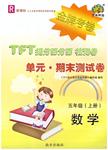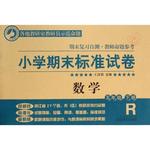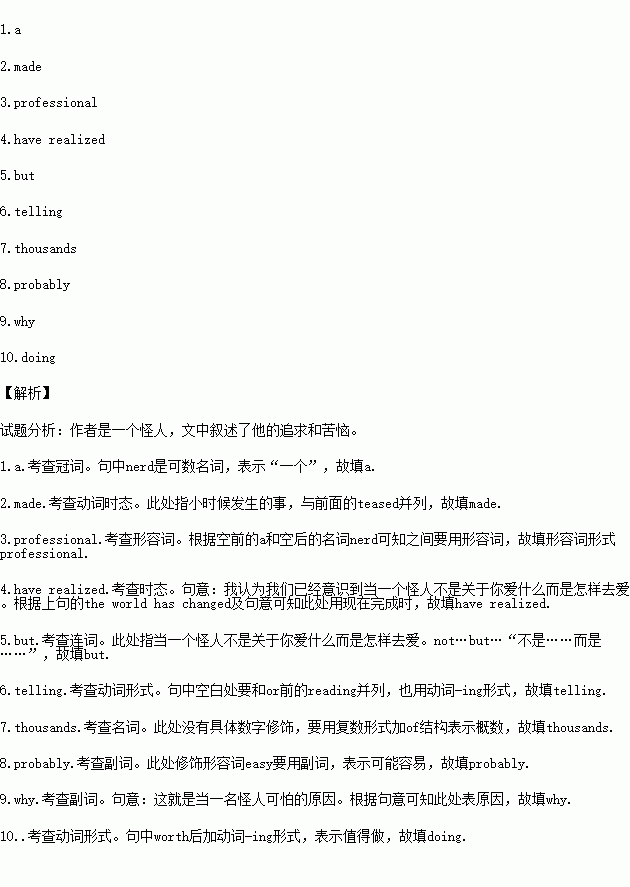题目内容
阅读下面材料,在空白处填入适当的内容(不多于3个单词)或括号内单词的正确形式。
My name is Wil Wheaton --- and I am a nerd (怪人). It’s awesome to be 1. nerd. When I was a little boy, people really teased me about that and 2. (make) me feel like there was something wrong with me for loving strange things. Now that I’m an adult, I’m a 3. (profession) nerd, and the world has changed. I think we 4. (realize) that being a nerd is not about what you love 5. about how you love.
So there’s going to be a thing in your life that you love. I don’t know what it’s going to be. It might be sports or science or reading or 6. (tell) stories --- it doesn’t matter what it is. Some of us love Game of Thrones, while others love Star Wars. But we all love those things so much that we travel 7. (thousand) of miles --- which is 8. (probable) easy for you, but we’re still using fossil fuels, so it’s difficult--- to be around people who love the things that we love the way that we love them. That’s 9. being a nerd is awesome.
I want you to work hard because everything worth 10. (do) is hard. I want you to be awesome, and I will do my very best to leave you a planet that you can still live on..
 提分百分百检测卷单元期末测试卷系列答案
提分百分百检测卷单元期末测试卷系列答案 小学期末标准试卷系列答案
小学期末标准试卷系列答案
